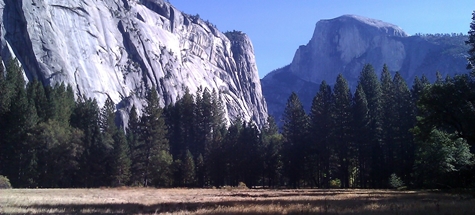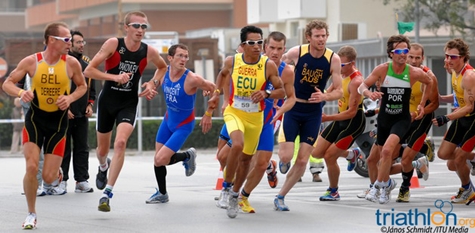 |
The Vigor of Uncertaintyby Dan Ballbach |
|
"Uncertainty can be seen as a threat, or it can be viewed as creating possibilities."
Neal Hartman
Sloan School of Management
MIT
How to Contend with Uncertainty in Lives Committed to Health, Longevity, Fitness and Quality
How do we contend with uncertainty in lives committed to health, longevity, fitness, and quality? Do we ignore uncertainty because it is an inevitable part of life and a mushy concept? Do we repress it with efforts to be calm and think just positive thoughts? Common synonyms for “vigor” are “energy” and “intensity.” Uncertainty makes demands on our energy and intensity. How we deploy that energy and intensity directly impacts positive or negative results. If we are committed to putting vigor into our lives in a way that contributes positively to longevity, we can not afford to ignore the reality of uncertainty. Nor should we put energy solely into avoidance or repression. We should be open to the potential valuable resource of uncertainty.
You might say “please, spare me the amateur psychology and phony feel good, self help stuff.” What foundation could there be for realistically confronting and managing uncertainty? In the process of writing a master’s thesis on the impact of uncertainty on organizational change, I was surprised by the scope and volume of academic literature devoted to uncertainty. Economists, mathematicians, decision-making scientists, and organizational experts have struggled to define and understand uncertainty in order to provide grounding for managing a state of mind. If such disciplines find uncertainty worthy of analysis, so should we as individuals who are applying multiple disciplines to the pursuit of health and longevity.
What is Uncertainty and What does it Do to Us?
Uncertainty has been defined as that which is not fixed or reliable, not accurately known, is liable to change, variable or erratic. Frequently used synonyms include doubt, skepticism, mistrust, ambiguity, speculation, instability, and risk. We experience uncertainty about health, job, career, relationships, financial stability, and the events of each waking day. Much uncertainty exists as low level noise managed by the influx of information as we move rapidly between tasks. The car starts, the bus arrives, colleagues say “good morning,” a paycheck is deposited, we feel well, we exercise, we eat sensibly and uncertainty is a nonevent. But, uncertainty is always present.
Uncertainty often builds slowly and quietly. The economy goes south and the peripheral impacts reach our employment sector slowly. Health deteriorates over time. Only with the onset of behavioral impacts do we see the underlying cause of some specific uncertainty. Meanwhile uneasiness builds and perhaps motivation and productivity decline. It takes reflection to answer the question, “what is going on here?” Hopefully we can ask and answer that question before crisis.
Uncertainty is not fun. It can be disorienting. We feel loss of control. Unhealthy impacts on attitude, food intake, sleep, exercise, and other inputs to our quality of life can occur. In a recent Leadership article I said chronic uncertainty and poor coping with uncertainty are precursors to excessive stress and anxiety. We know the potential harmful effects of these psychological states. Chronic unmanaged uncertainty can lead to anger and be a debilitating contributor to Depression. How we manage uncertainty and how it impacts our deployment of energy contributes mightily to our ability to achieve an Ideal Performance State. If uncertainty can lead to such negative consequences, we should draw upon the available learning to help us isolate, reflect upon and manage this demand on our valuable energy and intensity.
Traps in the Common Response to Uncertainty
• Drive to Eliminate. The typical reaction to uncertainty is an effort to reduce or remove the uncertainty. Uncertainty reduction is our first line of defense in an attempt to restore order and stability. Information gathering often helps. What data can I develop to eliminate or diminish the uncertainty? We may be able to assess probabilities and thus receive some level of comfort with the uncertainty because we can quantify risks. Or, we may frantically grasp for data because we are so fixated on removing the uncertainty.
• Insufficient Skills. Uncertainty may not be reducible with information. Only time may disclose the unknown and eliminate the uncertainty or bring new uncertainty. Some commentators say current global economic conditions present a unique set of circumstances which can not be analyzed with traditional means. We may have to live with the uncertainty, let it play out, see its manifestations and cope as best we can. Our skills for living with uncertainty get to the heart of how our energy is deployed with healthy or unhealthy consequences.
• Poor Decisions. The presence of uncertainty may precipitate quick decisions. It can trigger the “do something” response to replace the uncomfortable presence of uncertainty with action of any sort. Alternatively, we may defer or avoid decisions hoping for some clarity over time. Research shows a tendency toward irrational rather than rational decision-making in conditions of uncertainty.
• Head in Sand. The “ostrich” approach ignores the uncertainty and just focuses on filling time with any activity. Some will just stay busy with normal work rather than recognize or address the uncertainty. Unfortunately, uncertainty can be persistent and silently consumes more and more valuable energy.
• Behavior Intensifies. • Chronic behavior issues become more visible and perhaps more intense when the surrounding environment is uncertain. Conflict can increase in intensity and frequency. Difficult people become more difficult. Behavior styles become more pronounced. Irritability and frustration can be the norm. Leaders can become more command and control oriented just when they need to be listening and thinking.
• Habit ControlsHabits and rituals become even more important and we cling to them because they offer some certainty. It’s time for my workout. I have to do it now because that is when I do it. Regularity is important, but can become rigidity when uncertainty reigns.
• Discipline Declines. Unattended uncertainty can lead to erosion or even discard of valuable activities or constraints. I don’t feel motivated to do my workout today. What is the harm with one more drink?
• Hunker Down. We revert to conventional wisdom or the bias of hindsight without full reflection on the wisdom of action or inaction. The reaction is similar to “do something” but has the strong pull of past experience. We have always cut costs in the past, so we need to do it now.
How can we Effectively put Vigor into our Response to Uncertainty?
I do not advocate some ethereal “living in the moment” of uncertainty. I do suggest that our ability to step back and highlight the uncertainty we are experiencing holds great promise. The ability to live in the uncertainty, while experiencing a lack of clarity, could be a valuable asset or resource. The person who knows how to skillfully live with uncertainty frees up energy for other tasks. That is competitive advantage. A long time ago the poet John Keats touted the value of “negative capability” or the ability to be in uncertainty or doubt “without any irritable reaching after fact and reason.”
Psychologists used to think that uncertainty tolerance was a personality trait. They now tend to see it as a cognitive or emotional orientation with the implication that we can teach ourselves to be more tolerant of uncertainty and even embrace it. Here are a few ideas for escaping the above traps and dealing with uncertainty effectively :
• What is Going On? The more we allow reflection to dictate action, the more likely we are to expose and manage uncertainty. 21st century culture commands action. We all know and need to be reminded of the wisdom of stopping, catching our breath, observing, and thinking.
• What must I Do and When about the Uncertainty? What are the real time pressures requiring decisions to be made and actions to be taken and what can wait further deliberation, the passage of time or specific events?
• Go to 36,000 feet.The view from on top removes the details and reveals where we are. Mired in the details we miss both the threat and the opportunity coming our way because our vision is so limited. Try pulling away from the immediate task and instead view the context. This may help us avoid the Hunker Down trap. We are better positioned to ask which costs should be cut. Why?
• Focus. Don’t Flounder. There was a scene in the movie Apollo 13 when after a crisis occurred with no obvious solution the mission commander simply hushed the noise of anxious engineers by saying “ok folks, let’s work the problem.” This was not avoidance nor was it being mired in detail. Rather, it was a calming admonition to apply existing skills to better understand a situation of great uncertainty.
• See the Challenge. Game On. When we successfully isolate the uncertainty, we can work at using our energy and intensity with Clear Thinking to see the possibilities and use the uncertainty to our advantage. Curiosity is enabled and worry can be relegated to the background.
• See the Long Term. When uncertainty is recognized, the temptation is short term riddance. That may be appropriate but not at the expense of a look to the long term. We could approach the long term by envisioning various plausible futures. Posit several worlds some years ahead where certain forces have caused different outcomes whether we like them or not. What has to happen to get there? What should I be doing now to increase the likelihood of my succeeding in those futures? For example, suppose some of the work I currently do could be done more cost effectively with greater use of technology or by someone in a remote location with lower overhead costs. If I objectively see that force as plausible over a period of time, I could add skills now which will assure my longer term value. The critical point is to open our eyes to the key uncertainties or we remain blind to the need for action now.
Train for Certainty and Uncertainty
We crave certainty and it has valuable, if not critical, meaning for our lives. Many aspects of life are certain. But, so much of life is uncertain. And, we can be fooled by apparent certainty. Some say the overreliance on mathematical models helped fuel the recent Wall Street economic crisis and was in hindsight a false sense of security.
Healthy skepticism invites uncertainty and is a trait teachers have tried to instill in students throughout the history of learning. After all, so much creativity and innovation is spawned by uncertainty. We may have difficulty “embracing uncertainty” as some writers have suggested, but we can perhaps more willingly nurture a healthy dose of uncertainty and build resilience to counter the constant craving for certainty and thus train for uncertainty.
Uncertainty is too important to waste. Try thinking of uncertainty as breathing room, time for assessing what you are doing and what could change. If we can use uncertainty to fuel inspiration, we take energy and intensity in a positive direction. That is healthy.
Dan Ballbach, founder of Ascent Leadership, LLC, is an executive and consultant who practiced law for 24 years before embarking on a second career in Leadership in 1996. Dan earned his undergraduate degree at the U.S. Naval Academy and a J.D. from Duke University School of Law. In 2007 he earned a master's degree in organizational change leadership from the HEC School of Management in a joint program with the University of Oxford Said Business School. His professional experience includes government, manufacturing, utility, non-profit, law, medical, and engineering and environmental consulting sectors. More about Dan at The Change Leaders. Email Dan at : danballbach@ascent-leadership.com
<-- back to top





